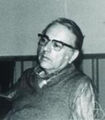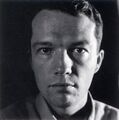December 5
1708: Mathematician Seki Takakazu dies. He created a new algebraic notation system and, motivated by astronomical computations, did work on infinitesimal calculus and Diophantine equations. Seki laid foundations for the subsequent development of Japanese mathematics known as wasan; he has been described as "Japan's Newton".
1859: Mathematician and physicist Louis Poinsot dies. Poinsot invented geometrical mechanics, showing how a system of forces acting on a rigid body can be resolved into a single force and a couple.
1872: The crewless American ship Mary Celeste is found by the Canadian brig Dei Gratia. The ship had been abandoned for nine days but was only slightly damaged.
1901: Physicist and academic Werner Heisenberg born. He will introduce the uncertainty principle -- in quantum mechanics, any of a variety of mathematical inequalities asserting a fundamental limit to the precision with which certain pairs of physical properties of a particle can be known.
1932: German-born Swiss physicist Albert Einstein is granted an American visa.
1953: American naval officer William Sterling "Deak" Parsons dues. Parsons served as an ordnance expert on the Manhattan Project during World War II.
1999: Mathematician Nathan Jacobson dies. He conducted research on the structure theory of rings without finiteness conditions--a subject closely related to the theory of algebras--which transformed the approach to classical results and broke ground for solutions to problems inaccessible by previous methods.
2008: Chemist and composer George Brecht dies. He was an American conceptual artist and avant-garde composer, as well as a professional chemist who worked as a consultant for companies including Pfizer, Johnson & Johnson, and Mobil Oil.







